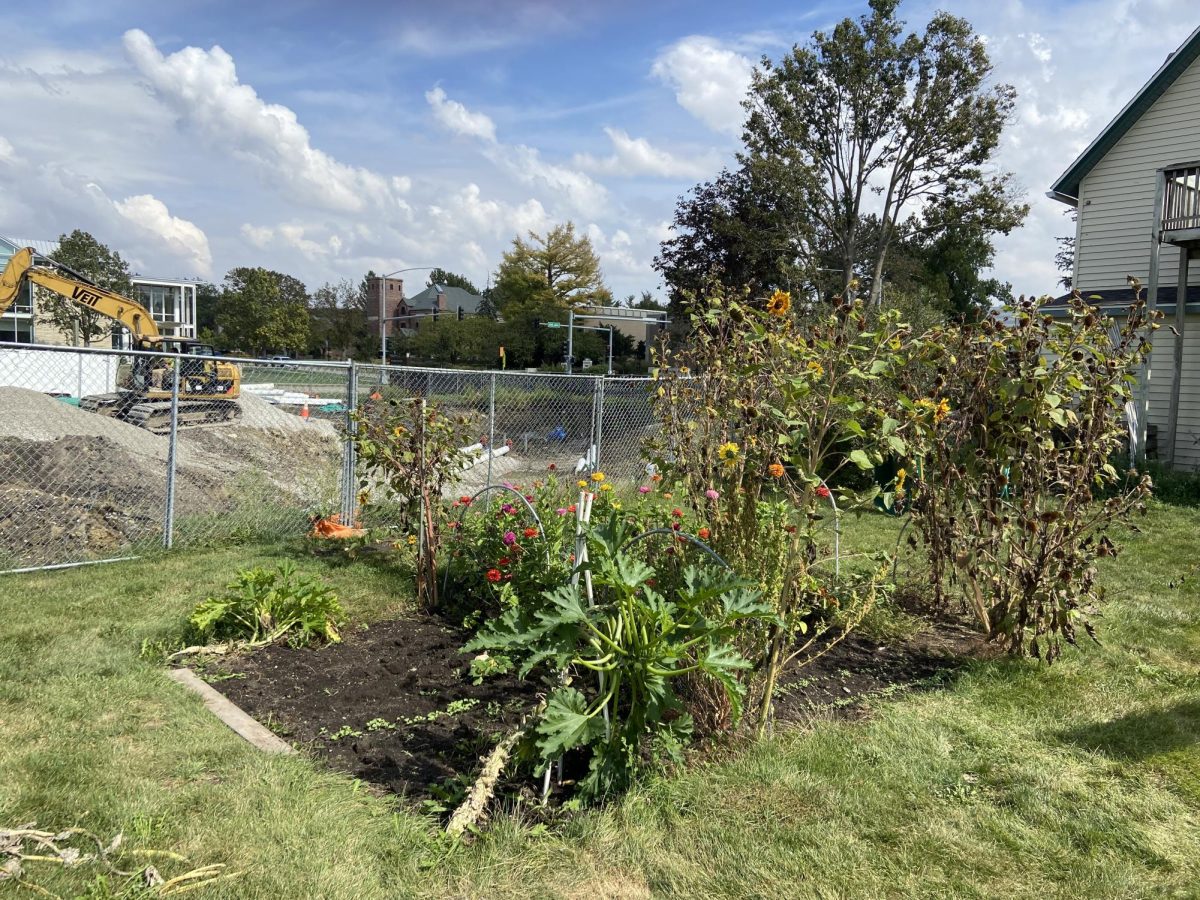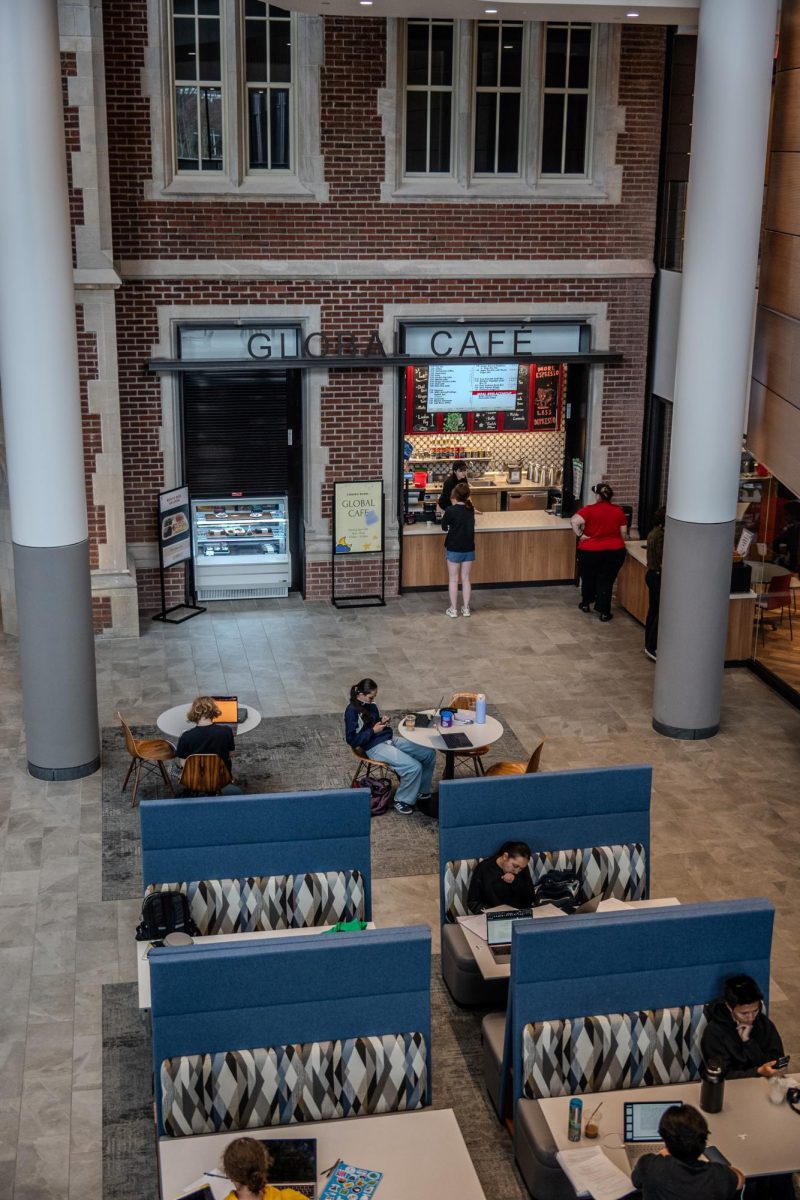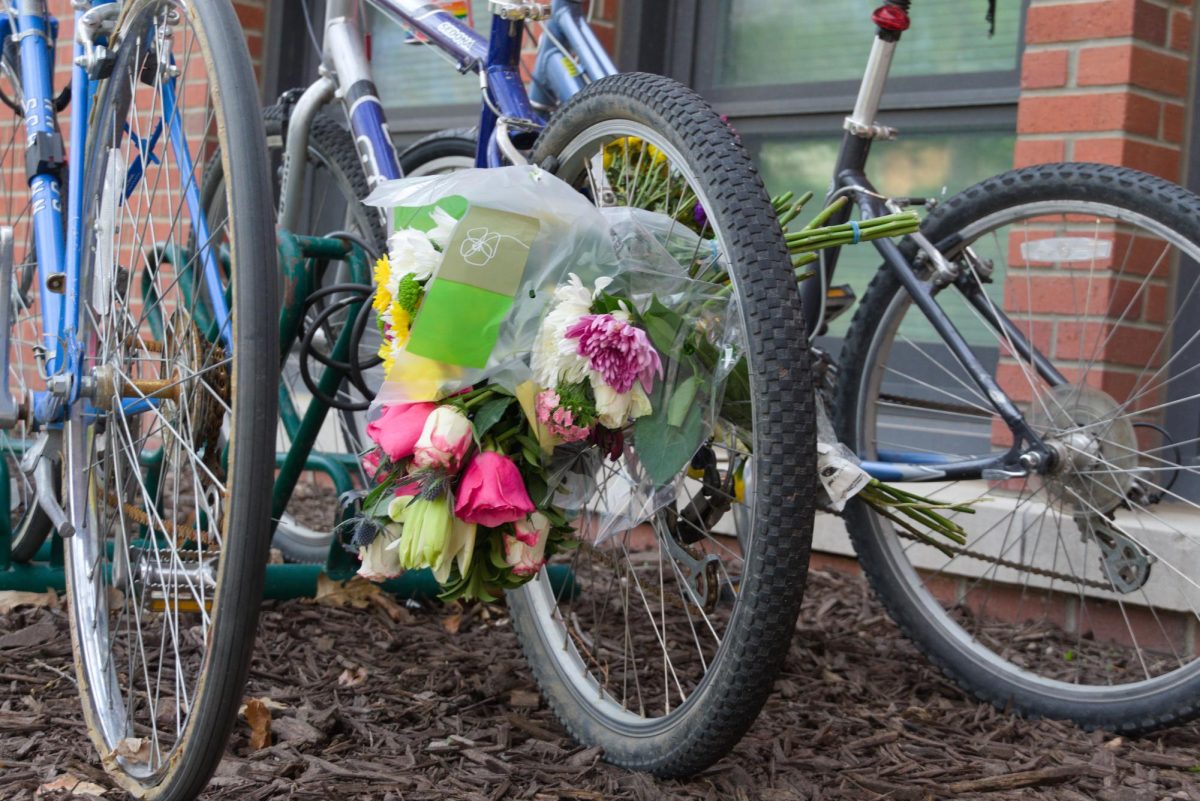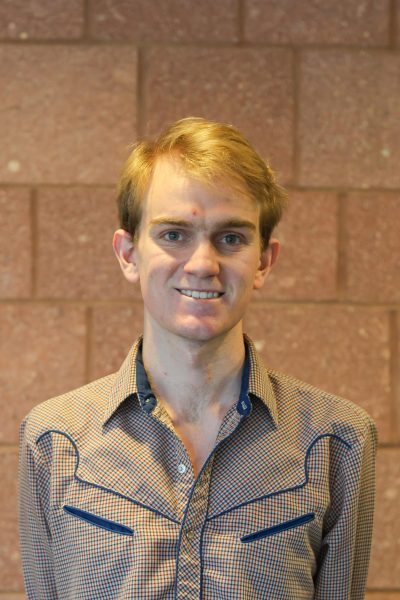Due to ongoing construction on the Civic Engagement Quad (CEQ) and Edith Renfrow Smith `37 Hall in downtown Grinnell, Farm House residents have temporarily lost access to the original plot of land they used to farm. To allow farming to continue, they have now implemented raised garden beds and repurposed the plot of land behind the house situated by the southwest corner of Sixth Avenue and Park Street.
Under the original construction plans, building the CEQ would involve tearing apart Sixth Avenue to allow workers to dig deep and connect the building’s utility infrastructure – such as heating and air conditioning – to the College’s infrastructure. However, soon after construction began, the workers realized that the original plan was not feasible and that they had to build directly underneath the original plot of land Farm House used to farm in, said Dennis Perkins Jr., assistant dean of residence life and student conduct.
Farm House residents found out the construction would affect their original plot of land in Spring 2022, and the College initially failed to provide any alternatives to the residents, said Farm House Coordinator Phil Tyne `24.
“But that is because Dennis Perkins is not a farmer,” said Tyne. Tyne said that Farm House residents collectively came up with the idea to install the raised garden beds –– however, not having a House Coordinator last year made coordinating with Facilities Management (FM) difficult. In Farm House, the House Coordinator acts as a liaison between the residents and the Department of Residence Life (ResLife).
After the residents came up with the idea, they requested supplies from ResLife and FM provided them with the resources necessary to build the beds and helped them find soil, said Tyne. Similarly, FM provided the residents with the resources necessary to transform the plot of land behind their house into farming-ready ground.
After the construction on Farm House began in late fall 2022, Farm House residents built the raised garden beds and converted the plot of land, allowing them to plant for the spring 2023 season.
Currently, Farm House has four raised garden beds and a plot of farming ground measuring 20 feet by 30 feet –– on which they are planting lettuce, tomatoes and summer squash among other plants. Once the CEQ construction is finished, Farm House will regain access to the original plot of land, increasing the number of raised garden beds in spring 2024, and therefore expanding the size of the farm, said Tyne.
Tyne wrote in an email to the S&B that Farm House residents hope to implement permaculture – a system of farming that produces no waste – with Iowa-native fruits and bushes.
“Some may not call this farming, it is a sustainable method of growing produce that is not as common in Iowa anymore, and having a space to highlight that means a lot,” wrote Tyne.
Farm House residents are currently producing enough food to feed themselves, host events like Farm Stock and Harvest Brunch – occurring on Oct. 6 and Nov. 4, respectively – and donate bags of food to the Chaplain’s Office Student Food Pantry at the Center for Religion, Spirituality and Social Justice every other week, said Tyne. Students are also welcome to come harvest food at Farm House during peak harvest seasons, said Tyne.
Correction: This article has been rewritten to emphasize that Farm House has not lost their farm. They have rather adopted a new system of farming following the temporary loss of their original plot of land. The decision did not come as a surprise to the residents as they were informed ahead of time by the College, who supported them throughout the process.


























































